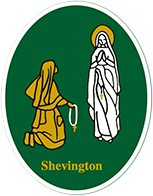Science
“For through him God created everything in heaven and on earth, the seen and the unseen things, including spiritual powers, lords, rulers, and authorities. God created the whole universe through him and for him.” (Colossians 1:16)
Intent
- To ensure high quality science education throughout the school which provides for our children the foundations for understanding the world.
- All pupils should be taught essential aspects of the knowledge, methods, processes and uses of science.
- To develop children’s ideas and ways of working that enable them to make sense of the world in which they live through investigation, as well as using and applying process skills
- Through building up a body of key foundational knowledge, concepts and scientific vocabulary, pupils should be encouraged to recognise the power of rational explanation.
- To encourage our children to understand how science can be used to explain what is occurring, predict how things will behave, and analyse causes
Implementation
- In ensuring high standards of teaching and learning in science, we implement a curriculum that is progressive throughout the whole school from EYFS to end of KS2.
- Each unit starts by reigniting and revisiting prior learning. Pre-learning is a specific focus within school with all of the teachers planning their Science topics with a clear understanding of the curriculum path that their children have followed.
- Science teaching at St Bernadette’s Primary School involves adapting and extending the curriculum to match all pupils’ needs. Whilst challenge is built into every lesson for the more able, support is in place for those children with additional needs. We use adaptive teaching – which includes explicit instruction, cognitive and metacognitive strategies, scaffolding, flexible grouping and through using technology.
- Fully Inclusive Science Investigation – is the central vehicle that drives learning in science. Central to this is implementing the skills of: observing, measuring, predicting, hypothesising, experimenting, communicating, interpreting, explaining and evaluating and developing the use of scientific language.
Impact
The impact of science education within our school is to ensure children not only acquire the science capital and appropriate age-related knowledge linked to the science curriculum but also to be able to use their scientific investigational skills to investigate the concepts that they have learned.
To measure the impact of teaching and learning of science in school, we have a rigorous assessment system that informs teacher assessment at regular intervals in the school year. We have end of unit quizzes and an end of year test. This allows future scope for effective attainment and achievement monitoring of impact on pupil progress across school.
Across the school year there are many in-built checks to monitor, evaluate and review the impact of science learning through the school.
These include learning walks, pupil voice, dedicated staff meetings, book looks and observations. The main thrust of these checks are to ensure that the impact on the children is that they have:
- A wider variety of skills linked to both scientific knowledge and understanding, and scientific enquiry/investigative skills.
- A richer vocabulary which will enable to articulate their understanding of taught concepts.
- High aspirations for their Science learning, which will see them through to future study that will help them with work and a successful adult life.
CURRICULUM OVERVIEW
Click on the links below
LONG TERM PROGRESSION SKILLS
Click on the links below
LONG TERM PROGRESSION ~ KNOWLEDGE
SCIENCE KNOWLEDGE ORGANISERS
Below is an example of the Knowledge Organisers we use in Science

